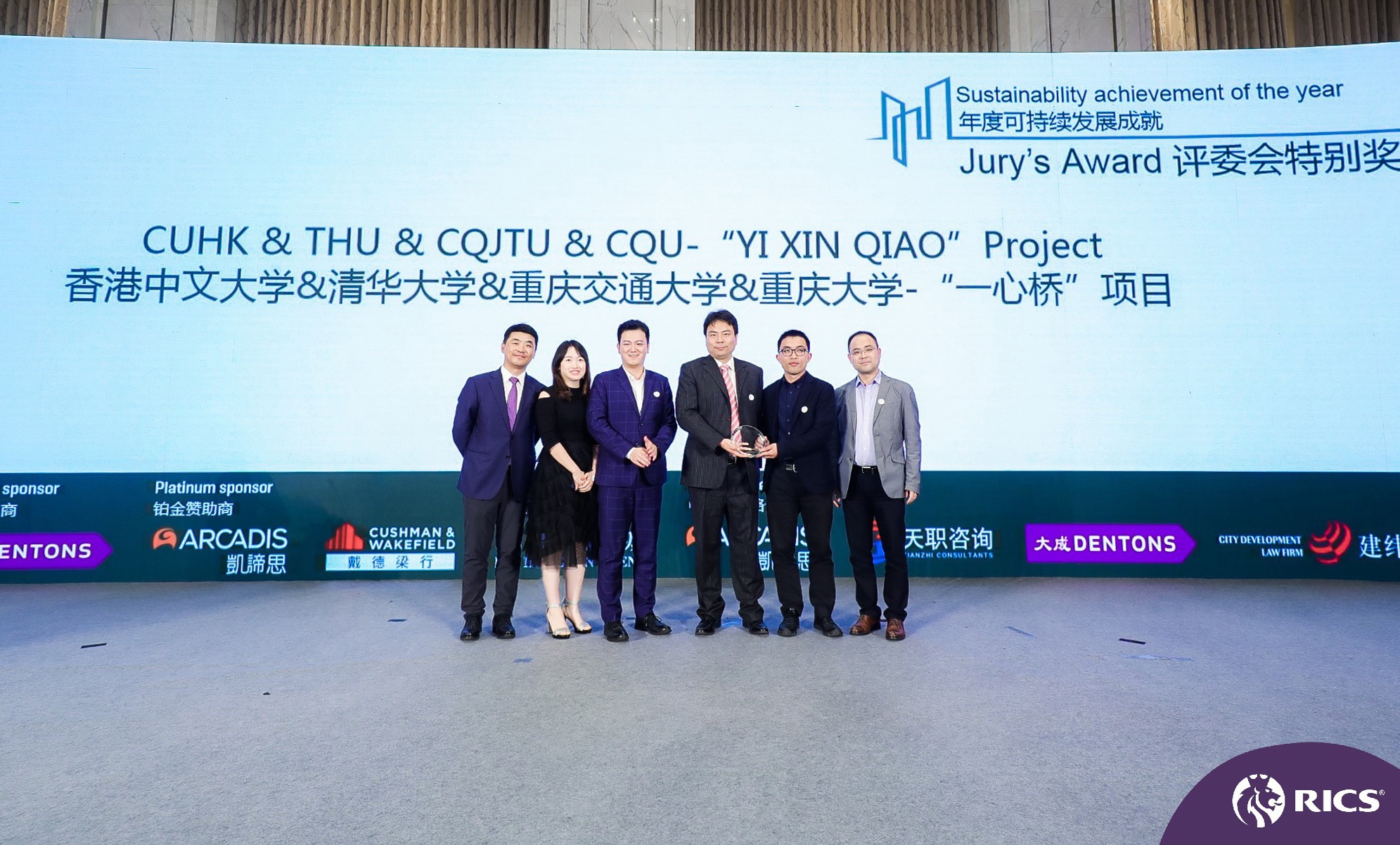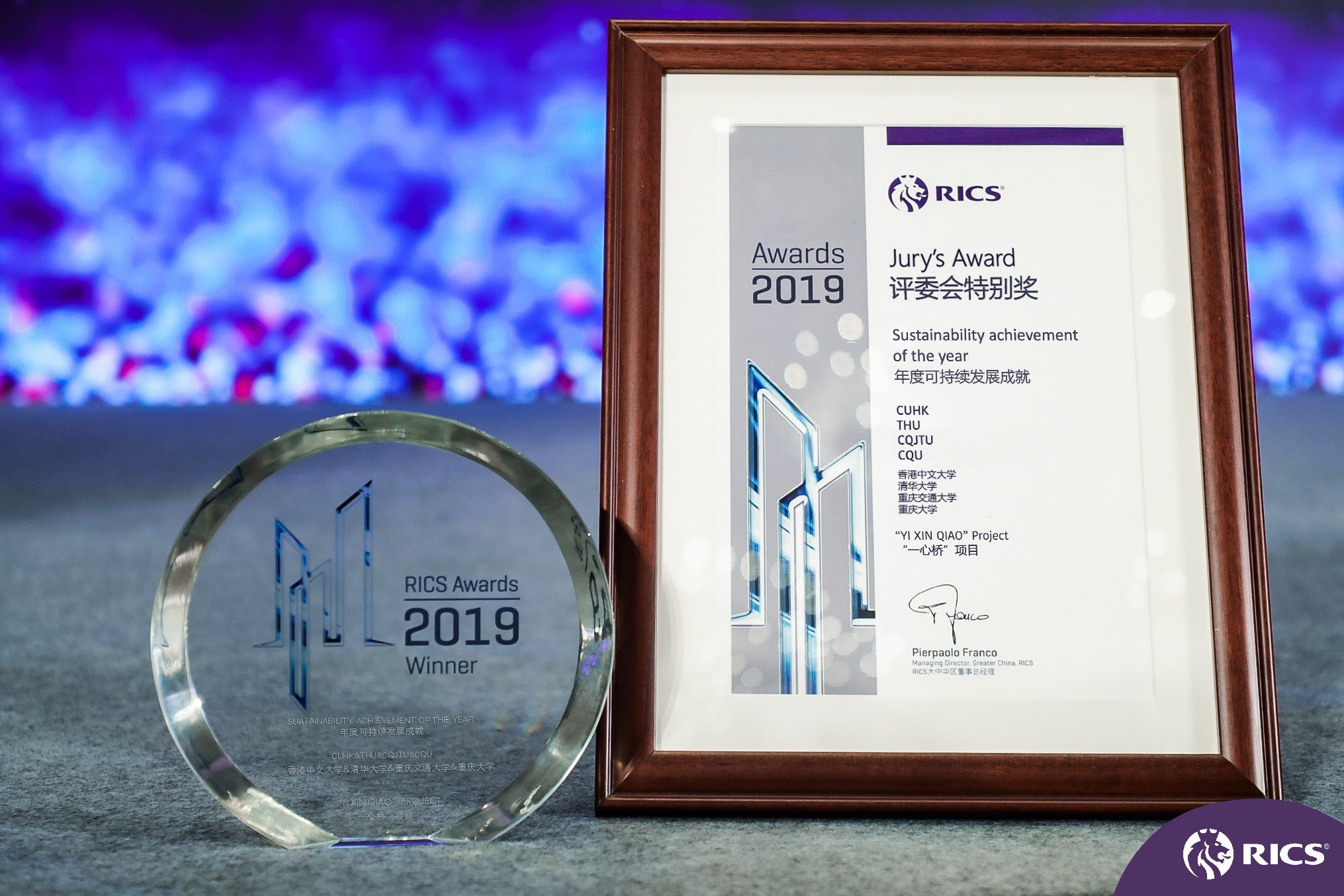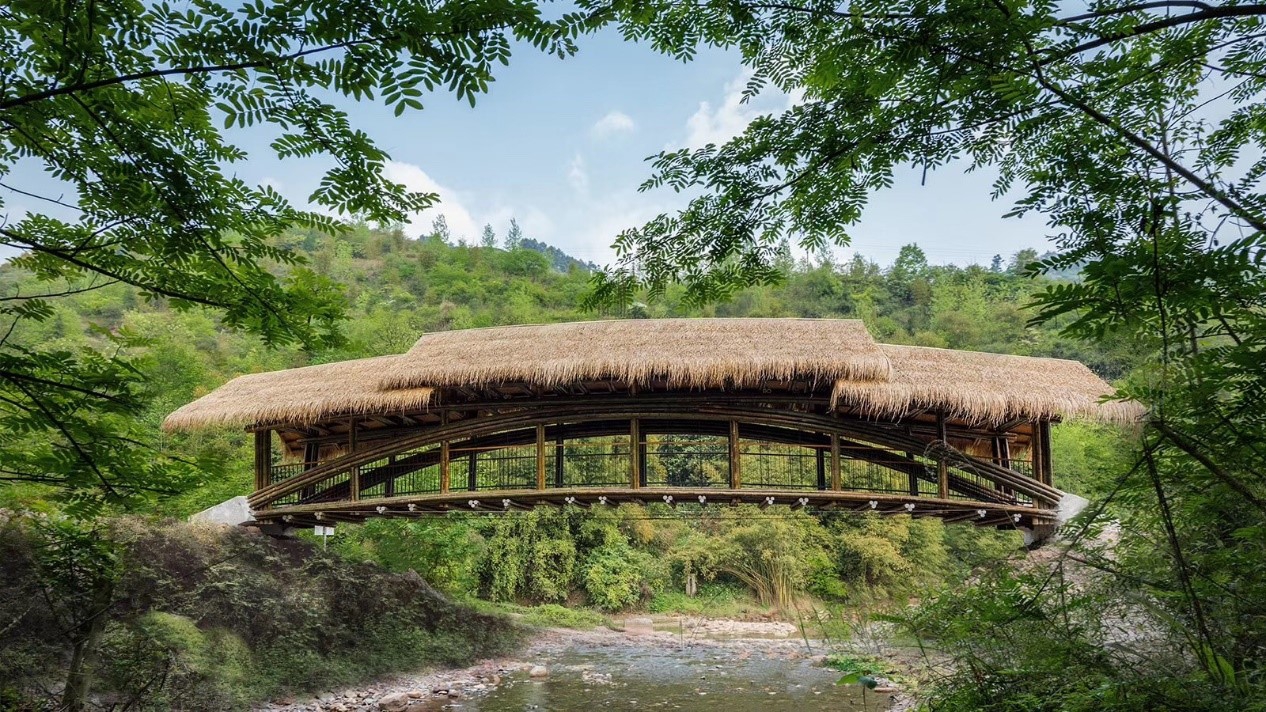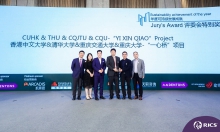CUHK
News Centre
CUHK “Yi Xin Qiao” Bridge Project Wins Jury’s Award of Sustainable Achievement of RICS Award China 2019
The “Yi Xin Qiao” bridge project in Dujia Village, Chongqing, has been awarded the Jury’s Award of Sustainability Achievement of the Royal Institution of Chartered Surveyors (RICS) Awards China 2019. This collaboration project between The Chinese University of Hong Kong (CUHK), Tsinghua University, Chongqing Jiaotong University and Chongqing University, was recognised for its bamboo research and outstanding ideas and achievement in promoting rural sustainability.
Research Collaboration and Social Contribution
CUHK Architecture PhD student Changzhuan SHAO, also the person-in-charge of the “Yi Xin Qiao” project, has formed a collaboration group with Tsinghua University, Chongqing Jiaotong University, and Chongqing University to investigate the bamboo structure. He studied the mechanics and physical properties of bamboo and the construction parts made from it. The research results were applied in the “Yi Xin Qiao” project in Dujia Village. His bamboo bridge design can theoretically be applied to most impoverished villages in the country and eliminate the dangers in river-crossing. This makes it more convenient for villagers to travel around and improves their livelihood, giving high significance to the outcomes of his thesis research.
Sustainable Design and International Recognitions
The “Yi Xin Qiao”’ project is fully sponsored by the Chan Cheung Man Chung Charitable Foundation. It is part of the “One University One Village Rural Sustainable Development Assistance Programme” (1U1V) and focuses on modern bamboo application, sustainable architecture and development. The bridge built in Dujia Village measures 21 metres long and 3 metres wide, with a usable surface of two metres wide. Constructed with 700 moso bamboos, it is the longest bridge among modern bamboo bridges in the rural mainland.
With the bridge project’s outstanding ideas and achievement in environmental protection, sustainable development, rural public welfare, and innovative technologies, it has been awarded the Jury’s Award of Sustainability Achievement of the RICS Award China 2019. The project has also previously won the First Prize of the 2017 College Student Bridge Design Competition. Moreover, Changzhuan SHAO, person-in-charge of the bridge project, was awarded the Special Contribution Award for Bamboo Architecture at the first Global Bamboo and Rattan Congress. These awards recognise the contributions of the project and encourage the 1U1V team to continue implementing and promoting modern bamboo building in the rural areas of Mainland China.
Technical breakthrough: an international first
Bamboo is the most environmentally friendly building material known to the public. The CUHK team has made a breakthrough on the technical constraints of bamboo, after years of studies and experiments. The successful construction of the bridge shows that the team has come up with solutions to improve bamboo material’s fragility, durability and structural integrity. This world leading effort will greatly promote the use of bamboo in the architectural sector.
Using the research results and practice these past years, the 1U1V team has also been trying to apply bamboo materials to rooftop structural architecture and an anti-seismic bamboo structural village house. Examples include the bamboo rooftop structure for the 1U1V Earth Building Research Centre in Kunming and the bamboo truss arch structure for the INBAR Pavilion located in the International Horticultural Exhibition 2019, Beijing, which was known as the “Bamboo Eye” of the exhibition.
The team will further study the key technologies of design and construction of long-span bamboo structures, improve their durability, and make the modern bamboo structure more widely used in rural construction, urban public buildings and other fields. The hope is that it can be promoted all over the world.
About One University One Village (1U1V)
The One University One Village Rural Sustainable Development Assistance Programme (www.1U1V.org) was planned and launched by Prof. Edward NG Yan Yung and Dr. Li WAN of the School of Architecture at CUHK in 2014. Its aims to gather professional knowledge and manpower from one higher institution to help improve the environment and livelihood of one village strategically, systemically, and sustainably.
(From left) Yu CHENG and Junsi YANG, Student of Chongqing University, Prof. Jun YANG, Civil Engineering Department, Tsinghua University, Changzhuan SHAO, PhD student, School of Architecture, CUHK, and Prof. Ruisheng FENG, Chongqing Jiaotong University.







